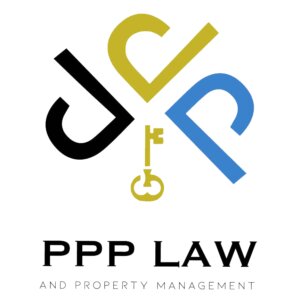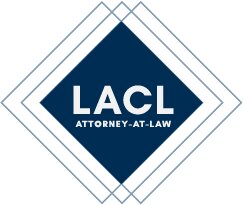Best Tax Lawyers in Huai Khwang
Share your needs with us, get contacted by law firms.
Free. Takes 2 min.
List of the best lawyers in Huai Khwang, Thailand
Thailand Tax Legal Questions answered by Lawyers
Browse our 4 legal questions about Tax in Thailand and read the lawyer answers, or ask your own questions for free.
- I am Swiss National received Social Securety from the USA year 2024 make arround 750.000Bath year . I single , leave in Rented Apartment 13 Years the moment.
- My Question is need to pay Tax on my Yearly Income Retirement Salary of 750000 Bath? Leave in a rented Apartment moment 13 years. i divorced for the past 25 years and am Single in Thailand Bangkok. have no other Income in my Savings Account, and I am living on... Read more →
-
Lawyer answer by Afe Babalola & Co. (Emmanuel Chambers)
If you are receiving U.S. Social Security benefits while living abroad, here are key points to consider regarding taxes and residency: - U.S. Taxes – As a U.S. income recipient, you may still owe U.S. taxes on your Social Security...
Read full answer - Retired living on social security income in Chiang mai
- Sir, I looked onto the tax chart where my income is at, 20%. I have a retirement OA visa that cannot earn any income while in Thailand. All my sources of income comes from SSI and a small annuity. I wire transfer money into a USD account and then do... Read more →
-
Lawyer answer by AD Legal Firm
Orders Nos. Por. 161 and Por. 162 of the Revenue Department, issued under Section 41, Paragraph 2 of the Revenue Code, stipulate that individuals required to pay tax based on overseas income are defined as follows: An individual who earns...
Read full answer - about the new tax law for foreigners
- I only have to pay taxes on the money I transfer to Thailand. How do I have to prove how much money I transfer? If I transfer let's say 1.000.000 Baht a year, how much do I have to pay for taxes if I paid already 130.000 Baht taxes in... Read more →
-
Lawyer answer by Lexiam Law
Only the income received overseas and/or in Thailand is subject to personal income tax. Transferred money is not subject to it but you have to declare the source and the purpose of transfer for it being able to be transferred...
Read full answer
Thailand Tax Legal Articles
Browse our 5 legal articles about Tax in Thailand written by expert lawyers.
- The Penalties Of Not Filing Your Income Tax Return As A Foreigner In Thailand
- Thailand has strict tax regulations that apply to both residents and non-residents. In recent years, the Thai Revenue Department has updated its policies on how both foreign and locally sourced income are taxed.For foreigners earning income from either of these sources, understanding these requirements has become more important than ever.... Read more →
- Legal Implications of Remote Work in Thailand
- Remote work, often referred to as telecommuting, has emerged as a dominant trend reshaping global employment landscapes. For Thailand, a country known for its digital nomad appeal and vibrant expat community, the rise of remote work brings unique legal, cultural, and operational considerations. Our comprehensive guide here explores the legal... Read more →
- Thai Legal Framework for Cryptocurrencies
- Technology, investment, and money have all been fundamentally altered by cryptocurrencies. Countries all throughout the globe struggle to design legal regimes that safeguard consumers while fostering innovation as these digital assets develop. Thailand distinguishes itself in this sense as it has one of the most thorough regulatory frameworks regarding cryptocurrencies... Read more →
About Tax Law in Huai Khwang, Thailand
Tax law in Huai Khwang is governed by the same national laws that apply throughout Thailand, but there can be local nuances and practical differences. Huai Khwang, a district in Bangkok, is home to both residents and a thriving business community. Taxes administered in this area can include personal income tax, corporate income tax, value-added tax (VAT), property tax, and other local levies. Navigating the tax system in Thailand requires an understanding of national tax statutes, local regulations, and the procedures specific to agencies in Huai Khwang.
Why You May Need a Lawyer
Tax-related legal advice is often necessary for a range of reasons. Individuals and businesses may need a lawyer to:
- Ensure personal or corporate tax compliance to avoid penalties
- Respond to tax audits or investigations by the Revenue Department
- Appeal against tax assessments or pay disputes concerning overpayment or underpayment
- Structure business transactions in a tax-efficient way
- Handle issues arising from property transactions, inheritance, or gifts
- Interpret double taxation provisions, especially for expatriates or foreigners
- Advise on value-added tax registration and refunds
- Represent in court or mediate tax disputes
- Assist in voluntary disclosure or amnesty programs
- Navigate complex tax registration and deregistration processes
Getting professional legal help can minimize liabilities, ensure compliance, and help resolve disputes quickly.
Local Laws Overview
Taxation in Huai Khwang is regulated by Thai national tax statutes such as the Revenue Code, the Land and Building Tax Act, and the Local Maintenance Tax Act. Key points concerning local tax matters include:
- Residents and businesses in Huai Khwang must register with the Revenue Department and comply with registration, filing, and documentation requirements.
- Personal income tax rates are progressive; official receipts and withholding tax certificates are important for correct filings.
- Corporate income tax is generally at 20 percent, but small businesses and regional headquarters may qualify for incentives or different rates.
- VAT applies to many goods and services; some exemptions exist for small operators or specific industries.
- Specific Business Tax may apply to certain businesses, such as banking and real estate leasing.
- Foreigners living or operating in Huai Khwang must consider potential double taxation and eligibility for treaties.
- Local offices of the Revenue Department and District Office manage collection, audits, and initial dispute resolutions.
Understanding these local and national rules is essential for legal compliance and proper tax planning.
Frequently Asked Questions
What types of taxes apply to individuals living in Huai Khwang?
Individuals are primarily subject to personal income tax. Other taxes, like land and building tax or inheritance tax, may apply depending on asset ownership and activities.
How do I register my business for tax purposes in Huai Khwang?
Businesses must register with the Revenue Department’s local office. Registration requirements can depend on business type, size, and structure, with documentation related to company formation, shareholders, and physical address.
Are expatriates living in Huai Khwang subject to Thai taxes?
Yes, expatriates who reside or derive income from Thailand are subject to Thai tax regulations. Double taxation agreements may provide relief in some cases.
When are tax returns due in Huai Khwang?
Personal income tax returns generally must be filed by March 31 each year for income earned in the previous year. Corporate tax deadlines fall after the close of an accounting year, typically within 150 days.
What happens if I miss a tax filing deadline?
Late filings can result in surcharges and penalties. If you have missed a deadline, consult a lawyer or tax professional promptly to minimize consequences.
How does VAT work for small businesses in Huai Khwang?
VAT registration is required for businesses with annual revenues exceeding a specified threshold. Small businesses below this threshold can remain unregistered, but may not be able to claim input tax credits.
Can I appeal a tax assessment in Huai Khwang?
Yes, taxpayers can file an appeal with the Revenue Department. There are formal time limits for appeals and procedures for further review or court action if unresolved.
How are property taxes calculated in Huai Khwang?
Property taxes are based on the Land and Building Tax Act. Assessment depends on property value, type, and usage. Annual statements are sent by the local authority.
What are common tax deductions available to individuals in Huai Khwang?
Standard deductions may be available for expenses like life insurance, mortgage interest, contributions to social funds, and charitable donations. Requirements can change yearly.
Where should I go if I need help with a tax problem in Huai Khwang?
You can visit the local Revenue Department office or consult with a professional tax lawyer for assistance in resolving issues or clarifying your obligations.
Additional Resources
If you need further guidance, consider these resources:
- The Revenue Department main office and Huai Khwang district branch for up-to-date forms and local inquiries
- Website of the Ministry of Finance for relevant legislation and tax updates
- Legal Aid offices in Bangkok for advice or support if you cannot afford a private lawyer
- The Thai Bar Association for referral to qualified tax lawyers
- Certified accounting professionals or tax agents for practical tax filings and planning
Next Steps
If you believe you might need legal assistance with a tax-related matter in Huai Khwang, consider the following steps:
- Gather any documents related to your tax issue, such as correspondence from the tax office, tax returns, receipts, and business licenses.
- Schedule a consultation with a local tax lawyer or tax advisor who understands Huai Khwang’s practical procedures.
- If your issue is time-sensitive, such as a tax audit or assessment deadline, do not delay seeking advice as penalties can increase quickly.
- Contact the local Revenue Department for basic queries, but seek independent legal advice for complex or contentious matters.
- Monitor deadlines and keep clear records of communications and submissions to tax authorities.
Seeking timely, qualified legal guidance can help you comply with your tax obligations and avoid unnecessary disputes or penalties in Huai Khwang, Thailand.
Lawzana helps you find the best lawyers and law firms in Huai Khwang through a curated and pre-screened list of qualified legal professionals. Our platform offers rankings and detailed profiles of attorneys and law firms, allowing you to compare based on practice areas, including Tax, experience, and client feedback.
Each profile includes a description of the firm's areas of practice, client reviews, team members and partners, year of establishment, spoken languages, office locations, contact information, social media presence, and any published articles or resources. Most firms on our platform speak English and are experienced in both local and international legal matters.
Get a quote from top-rated law firms in Huai Khwang, Thailand — quickly, securely, and without unnecessary hassle.
Disclaimer:
The information provided on this page is for general informational purposes only and does not constitute legal advice. While we strive to ensure the accuracy and relevance of the content, legal information may change over time, and interpretations of the law can vary. You should always consult with a qualified legal professional for advice specific to your situation.
We disclaim all liability for actions taken or not taken based on the content of this page. If you believe any information is incorrect or outdated, please contact us, and we will review and update it where appropriate.













